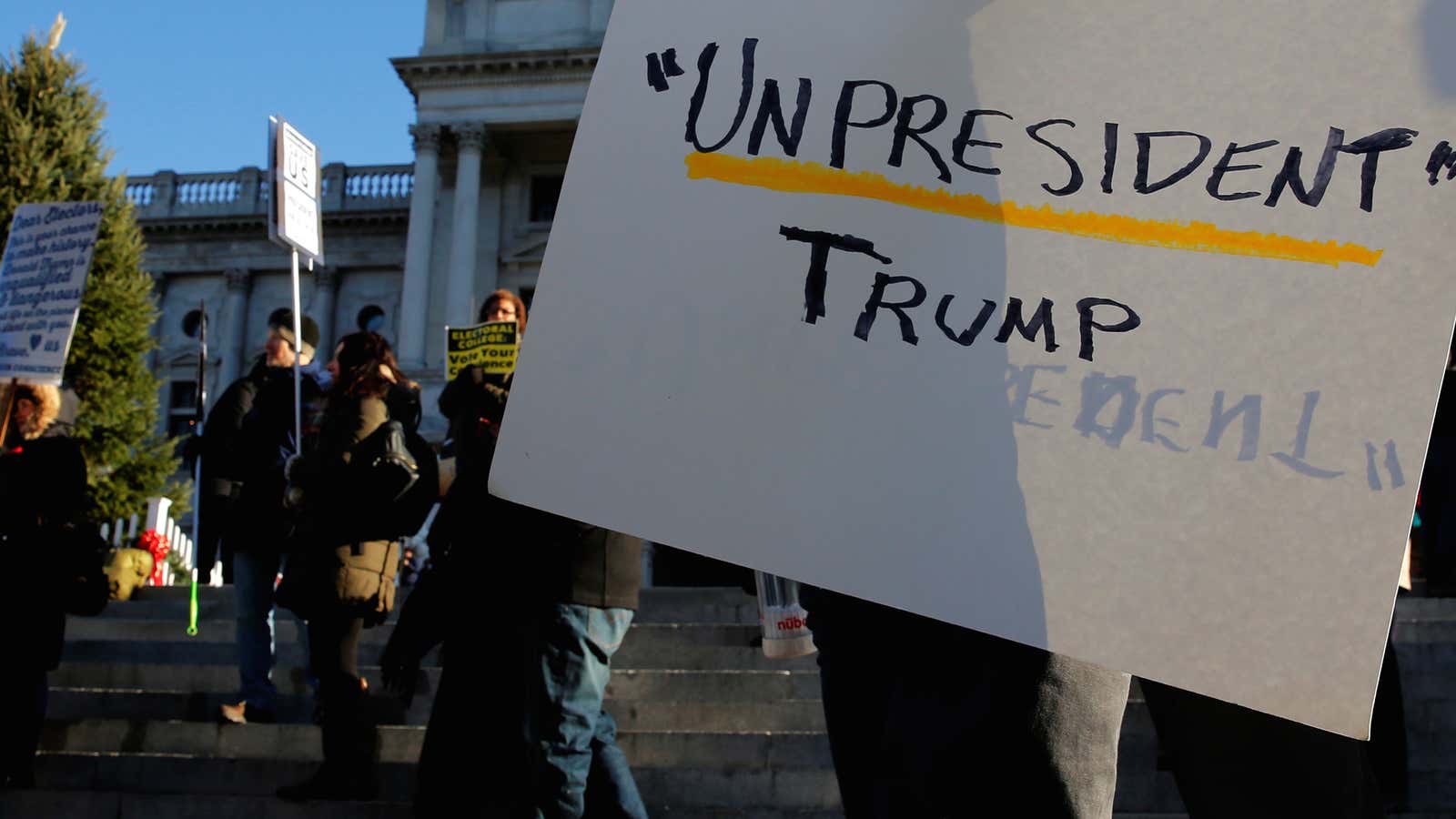On Dec. 4, Italians went to the polls to decide on a reform referendum that would redefine the power of local governments and reduce the power of the senate. With a high turnout, my countrymen rejected the reform. In the press, the voters’ decision was described as an Italian Brexit, and a triumph of populism. Beppe Grillo and his Five Star Movement, arguably Europe’s largest populist party, celebrated with Matteo Salvini, leader of the xenophobic Northern League; Marine Le Pen sent congratulations via Twitter, claiming that Italians’ had disavowed not just their prime minister, but the entire European Union.
What had actually happened, however, was more nuanced. And yet, the disappointment amongst liberals—the majority of whom had supported the reforms—was palpable.
On Facebook, my heavily ”blue feed” shared news and commentary that unanimously condemned the victory of the “no” camp. Many of these articles claimed the vote was yet another example of democracy failing progress: The misguided, misinformed people who had voted “no” were helping to stunt Italy’s growth or, worse, had fallen for the xenophobic promises and empty slogans of politicians like Grillo and Salvini.
Misguided, misinformed people like, me apparently.
I voted no, first and foremost because I disagreed with the reform. I didn’t do it because I want Italy to leave Europe, dislike immigrants, or because I despise career politicians. Quite the contrary, in fact. I, too, am worried that Italy might end up going backwards, closing borders, and limiting chances. But—after gathering as much information as I could on the reform and its likely consequences—I concluded that, amongst other issues, the proposed changes to the constitution would end up making a future populist government’s life unnecessarily easy and even more dangerous.
It was a difficult vote, and while I stand by it, I don’t discount the possibility that history may prove me wrong. So I was eager to hear the reasons why so many of my friends had voted “yes.” Before and after the vote, I wanted to understand their points, and I certainly respected their choices.
But they—the yes voters, whose opinions and commentary filled my social media platforms—didn’t seem to have the same respect for my reasoning. As an opinionated citizen with consistently liberal views, I am used to being attacked and insulted by conservatives for my choices and opinions. But the liberal critiques I read weren’t so much attacking my decision as they were questioning my intelligence and my ability to understand the issue.
For the first time in my life, I was on the outside of the so-called liberal bubble, looking in. And what I saw was not pretty. I watched as many of my highly educated friends and contacts addressed those who disagreed with them with contempt and arrogance, and an offensive air of intellectual superiority.
It was surprising and frustrating to find myself lumped in with political parties and ideologies I do not support. But it also provided some insight into why many liberals seem incapable of talking with those who hold different opinions. (This is, broadly speaking, not just a liberal problem.) In so much of what I read, there was a tone of odious condescension, the idea that us no voters were perhaps too simpleminded or too uninformed to really grasp the situation.
The majority of these arguments did not explain why my choice was wrong. And after reading piece after piece of snarky, bitter commentary, I too lost the desire to engage with my yes-voting peers.
There were exceptions, of course. I had a few fruitful debates that added to my perspective, but by and large I stayed away from yes voters entirely. And I certainly wasn’t persuaded by their argument.
The experience certainly made me wonder how many times I, too, may have been guilty of this kind of “libersplaining.” It’s easy to feel smug when you are living in an echo chamber. But now I truly understand how damaging that echo chamber can be: not only does it not win arguments, let alone votes, but it drives away those who might otherwise have been willing to change their minds.
I suspect that the sudden popularity of the term populism has led to a similar lack of respect and curiosity for opinions we disapprove of. It may even betray a fundamental belief, inadvertent or explicit, that the populus is somehow lesser—less critical, less acute, and easier to sway.
But it is not. Liberals may be heavily represented in the media, the centers of culture (popular, and otherwise), and in academia. But unless we are able to start learning how to talk to people unlike us, we’ll likely keep losing. It is not the only reason for the current political polarization—but it is one we can all work to address.
